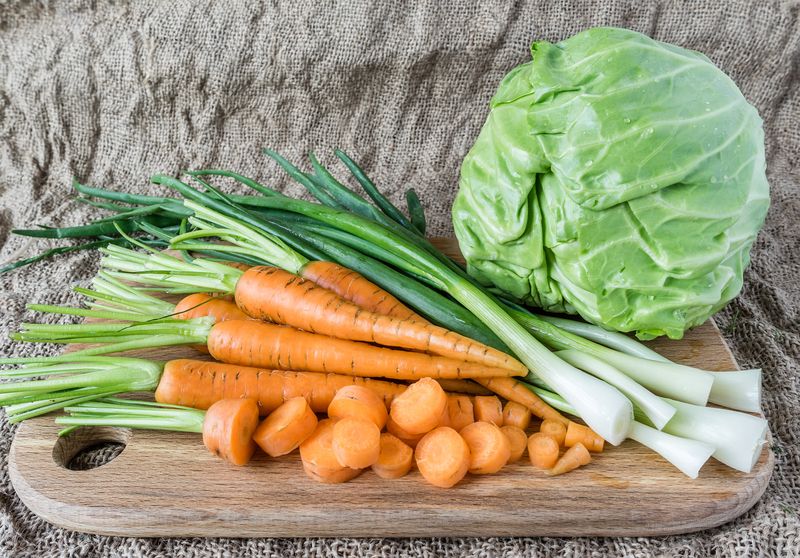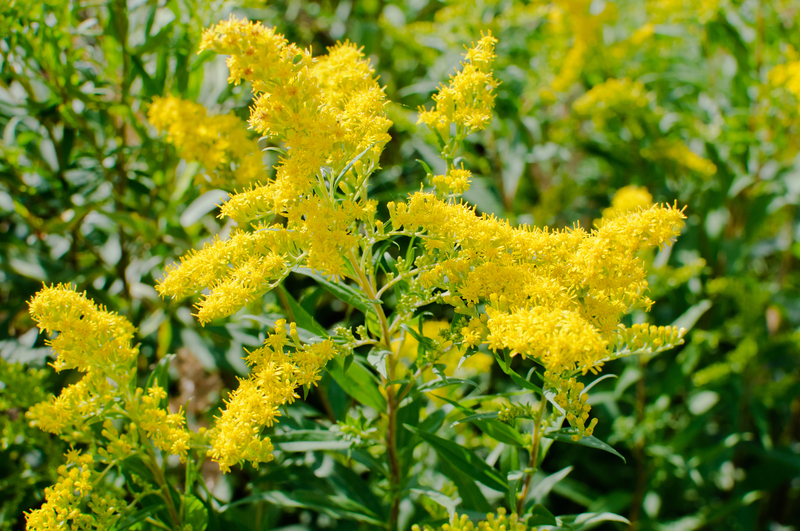Preserving Fresh Garden Herbs
Posted on 13/11/2024
There's nothing like the taste of fresh herbs, hand-picked from your own garden. However, there comes a time when you might be left with an abundance of herbs that you can't use up all at once. Knowing how to preserve these fresh garden herbs can extend their flavor and utility. This comprehensive guide explores various methods to preserve garden-fresh herbs so you can savor their aromatic goodness throughout the year.
Why Preserve Fresh Garden Herbs?
Fresh garden herbs enhance the flavor of your dishes, boast numerous health benefits, and can become an inspiring part of your cooking routine. However, not using them up quickly can lead to wastage. By preserving herbs, you can enjoy their flavors and nutritional benefits all year long, reducing waste and saving money in the process.

Methods of Preserving Fresh Garden Herbs
Freezing
Freezing is one of the simplest and most effective ways to preserve fresh herbs. The method retains much of the flavor and nutritional value.
- Whole Leaf Freezing: Wash the herbs and pat them dry. Lay them in a single layer on a baking sheet and freeze them. Once frozen, transfer the herbs to a freezer bag.
- Chopped Freezing: Chop the herbs and place them in ice cube trays. Fill the trays with water or olive oil and freeze. This method is perfect for soup or sauce recipes where you can just add a cube or two directly.
- Herb Butter: Mix finely chopped herbs with softened butter. Freeze the herb butter in portions to use later on grilled meats, vegetables, or bread.
Drying
Drying herbs is a classic method of preservation that has been around for centuries. It's perfect for sturdier herbs like rosemary, thyme, and oregano.
- Air Drying: Bundle small bunches of herbs with twine and hang them upside down in a well-ventilated space away from direct sunlight. After about 1-2 weeks, the herbs will be dry and ready for storage.
- Oven Drying: Spread the herbs on a baking sheet and place them in an oven at the lowest setting for 1-2 hours. Keep the oven door slightly open for air circulation.
- Dehydrator: Use a dehydrator following the manufacturer's instructions. This is a quicker and more reliable method compared to air or oven drying.
Infusing
Infusing oils, vinegars, or alcohol with fresh herbs not only preserves the herbs but also creates flavorful boosts for your culinary creations.
- Herb-Infused Oils: Fill a sterilized jar with fresh herbs and cover them with a good-quality oil (like olive oil). Store in a cool, dark place and use within a few weeks.
- Herb-Infused Vinegars: Similar to oil infusion, place herbs in a sterilized jar and cover with vinegar. Store in a cool, dark place and shake occasionally for a couple of weeks before using.
- Herb-Infused Alcohol: Fill a jar with fresh herbs and cover them completely with vodka or another clear spirit. Store in a dark, cool place for a few weeks, then strain and use in cocktails or as medicinal tinctures.
Tips for Preserving Fresh Garden Herbs
- Always use fresh, undamaged herbs for preserving. Avoid any that are wilted, browned, or have pests.
- Label and date your preserved herbs to keep track of their freshness.
- Store dried herbs in airtight containers, away from direct sunlight to retain their flavor.
- Be mindful of the shelf life of each preservation method. Frozen herbs are best used within 6 months, while dried herbs can last up to a year or more if stored properly.
- Experiment with combinations of herbs when infusing oils or vinegars for unique flavors.
- Always store infused oils in the refrigerator to prevent botulism.
Pros and Cons of Preserving Fresh Garden Herbs
Pros:
- Reduces waste and saves money.
- Allows you to enjoy the flavors of fresh herbs year-round.
- Preserves nutritional value and health benefits.
- Can enhance culinary creativity with infused oils and vinegars.
Cons:
- Some preservation methods require specific equipment, like a dehydrator or high-quality oil.
- Preserved herbs may not have the same vibrant taste and texture as fresh ones.
- Certain methods, like air drying, can take a longer time.

Takeaways
Preserving fresh garden herbs through freezing, drying, and infusing are all excellent ways to extend the life of your garden's bounty. Each method has its unique advantages and best use cases, allowing you to enjoy those summer flavors even in the heart of winter. With the right techniques and a bit of preparation, the flavors of basil, thyme, rosemary, and more can be a year-round staple in your kitchen.
Conclusion
Preserving fresh garden herbs is a practical and rewarding process. By knowing various methods of freezing, drying, and infusing, you can keep the essence of your garden alive throughout the year. Whether you want to save money, reduce waste, or simply enjoy the continuous supply of flavor, these preservation techniques will serve you well. With a little effort, you can ensure that garden-fresh taste lingers far beyond the growing season, enriching your culinary adventures all year long.
Latest Posts
Top Tips for Cleaning Your Patio and Paving Like a Pro
Easy Steps to Sharpen Your Garden Shears Without Leaving Home
Inspiring Concepts to Cultivate Your Own Zen Garden Sanctuary




